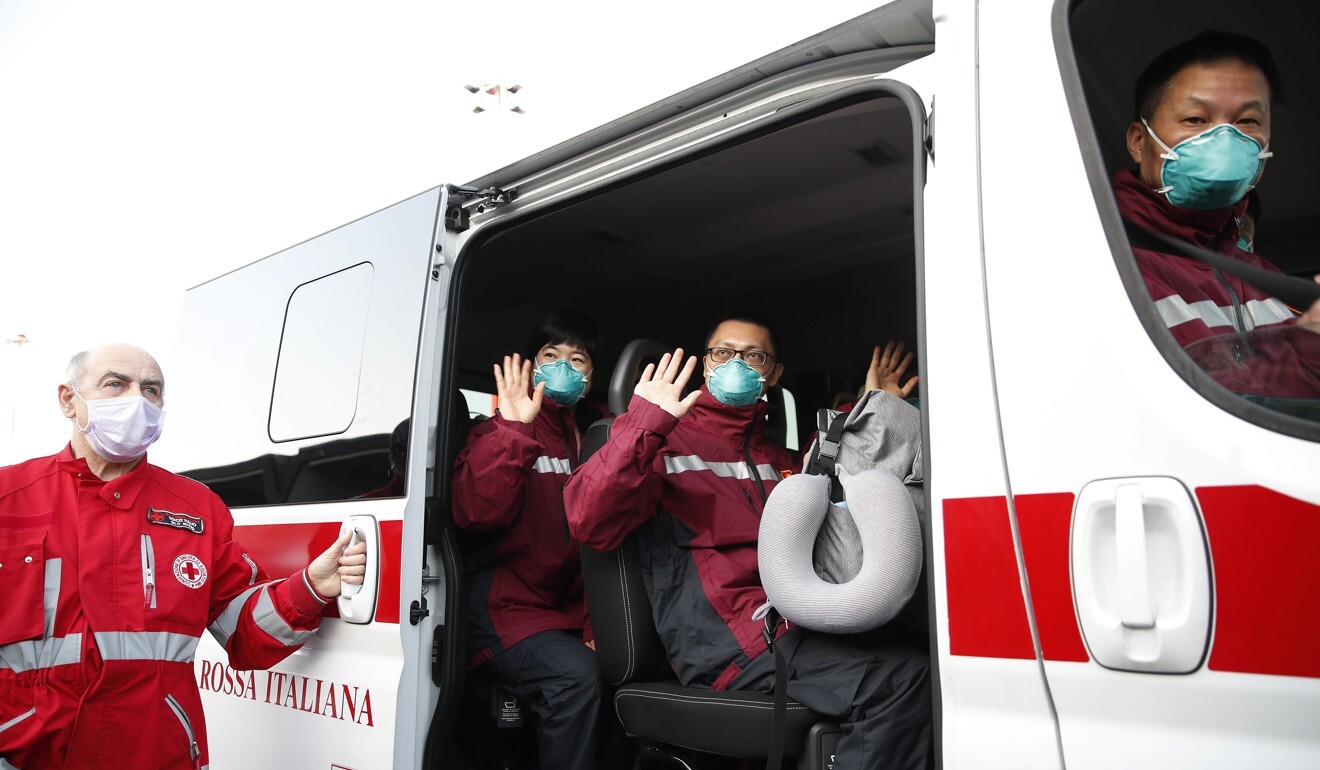
Beijing tried to use the coronavirus crisis to enhance its global standing. It’s not working
- Despite American errors and poor leadership, the pandemic only proves that the foundations of underlying strength are still solid for the United States and fragile for China

As more Americans die from Covid-19, the Chinese economy is gradually recovering. Beijing is sending medical supplies, ventilators and even doctors to other countries in a public show of largesse.
This is leading to speculation that one of the first casualties in a post-Covid world will be American leadership, and that China is well positioned to move into the resulting vacuum.
Within America, there is much finger-pointing occurring, especially towards Donald Trump who was slow to prepare for the pandemic. The disorganised state of the country’s health system is being exposed. In turn, the president has deflected that blame back onto Beijing as a virus which was “made in China” and could have been “stopped in China”.
Indeed, one should make the case that far more grievous errors were committed by Xi Jinping arising out of recklessness and, in particular, obfuscating the nature of the virus for several weeks when the Communist Party knew how contagious and lethal Covid-19 actually is.
Regardless, assessments of the changing of the guard ought to be based on far more than what we think about the respective leaders and their immediate responses to Covid-19. If anything, the pandemic has only served to emphasise that the foundations of underlying strength remain solid for the US and fragile for China.

An important clue is found in looking at where institutions, firms and individuals flee for safety and choose to park their wealth and capital in times of crises, like the present. This is an indicator of where true confidence in the future lies, or where long-term bets are being made.
American financial and capital markets are the deepest, most diverse and among the most trusted in the world. It is why there are about 160 Chinese firms listed on American exchanges with a combined market capitalisation of around US$1 trillion. It is telling that as the pandemic develops, global entities are fleeing to purchase and hold US dollar assets, followed by the Japanese yen, Swiss franc and gold.
In contrast, the onset of the pandemic has deepened wariness of the long-term prospects of China as a safe and reliable political economy with trustworthy institutions. Even as the US is approaching the peak of the spread of Covid-19, there has not been a global rush to purchase Chinese assets.
It does not help China’s position that its renminbi is neither free-floating nor freely convertible. This continues to place severe limits on the extent to which it can become a store of value and therefore a genuine reserve currency. The latter allows the US to reduce borrowing costs, given the enduring demand for US dollars.
China might have the largest bond market in the world to sustain its overleveraged economy, but only 2 per cent of these are owned by foreigners.
More generally, the pandemic is a devastating wrecking ball crashing through the American economy. But unlike a physical war, there has been no permanent destruction of capital assets or degradation of the factors giving rise to the country’s innovation and knowledge base.
When the pandemic eventually subsides, it is almost impossible to imagine any American administration championing business as usual with China. This is bad news for Xi as his industrial upgrading plans such as “Made in China 2025” depend on continued and unrestrained flow of American know-how and innovation into the country.
Finally, can China orchestrate a propaganda victory which can have significant ramifications? The reality is that governments are holding their nose whilst receiving Chinese help. Other countries might not agree with Trump about much, but they do concur with him that Covid-19 began in China and should have been stopped in China.
Worldwide and widespread criticism of the World Health Organisation for parroting Beijing’s downplaying of the seriousness of Covid-19 back in January only serves to emphasise that Xi has badly damaged China’s national brand. Beijing is losing a propaganda war that it chose to launch about the competency of its response and superiority of its system.
Calling on the US to refocus on better meeting the demand for global leadership is reasonable, including through better collective action with its numerous and long-standing allies and partners.
But it is too long a stretch to conclude that Covid-19 will lead to the passing of the torch of leadership to China. Beijing’s ad hoc allies and partners such as Russia, Pakistan and Iran can command attention, create formidable problems and coerce neighbours. But they cannot, with China, collectively shape the world and redefine global governance.
There is no doubt China is trying to use the pandemic to enhance its global standing and position. It is not any underlying US weakness but complacency, a turn inward, or else losing its nerve that will determine whether Beijing succeeds.
Dr John Lee Cheong Seong is a senior fellow at the Hudson Institute in Washington DC and at the United States Studies Centre in Sydney where he is an adjunct professor. From 2016-2018, he was senior national adviser to the Australian foreign minister